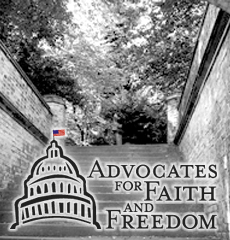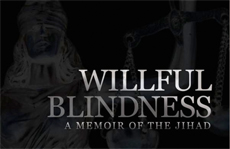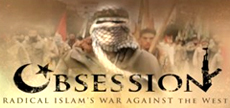It is a sad travesty that we are losing our true historical understanding and heritage of our national traditions. They are RICH with incredible meaning, purpose and understanding of our many national blessings that we take for granted.
When you understand our true history – the appreciation we should have for our Patriarchs and their relationship with God should serve as a model that we should once again emulate in terms of how grateful we need to be as a People before God.
The following is an essay from my mentor and freind Peter Marshall, who understands our true religious history better than anyone I have ever had the pleasure of reading, hearing or studying under.
Why should we celebrate Thanksgiving? Is this holiday just the annual American fall holiday that President Abraham Lincoln put on the calendar during the Civil War, or does it have a special significance for us above and beyond its tradition?
For most of us, Thanksgiving is about family, feasting, and football—approximately in that order. If we think about God at all, it usually involves saying a few simple pre-turkey-carving prayers of thanksgiving for His blessings during the year which is now fast ebbing away.
But, had it not been for the hand of God watching over that hardy little band of Pilgrims that found themselves thrown up on the shores of Massachusetts in 1620, there would have been no first New England thanksgiving. And quite probably, no modern holiday to celebrate.
What keeps modern Americans from properly understanding who the Pilgrims were, and the pivotally important role they played in our history? That we are not taught the whole truth about why they came to America. Every school child has been told for decades upon decades that the Pilgrims came to America for religious liberty, or religious freedom. Not quite right. Shallow history teaching.
In reality they were missionaries, coming to the New World to plant the Gospel of Jesus Christ in the wilderness. As their great governor and chronicler, William Bradford, wrote: “They had a great hope and inward zeal of laying some good foundation…for the propagating and advancing the Gospel of the kingdom of Christ in those remote parts of the world; yea, though they should be but even as stepping-stones unto others for the performing of so great a work.” Obviously, they had a strong sense of call and mission.
What is special about the Pilgrims is that these English evangelical Christian exiles actually layed the moral, spiritual, and governmental foundations of America at Plymouth (see our book The Light and the Glory, and my DVD “Pilgrims, Puritans, and Patriots,” and the DVD teaching seminar “Restoring America” — all available on my website). But it was only by God’s repeated intervention that they survived to accomplish their calling.
With other Puritans, they had endured vicious religious persecution in England, having been arrested often by the King’s soldiers and imprisoned by sheriffs. Finally, fleeing for their lives to Holland, they settled in the town of Leyden. There they enjoyed religious freedom for 12 years. But, toward the end of this time, it became increasing clear to them that God was calling them to leave Holland and come to America.
Consider the fact that, if their motivation had been primarily about religious liberty, they could have stayed where they were. They already had it. But what compelled them was much deeper than that. They were missionaries. They weren’t running away from anything when they came to America — they were obeying the call of Christ on their lives!
Leaving Leyden in mid-summer, they traveled in barges to Delfthaven, and boarded the small ship Speedwell for the short trip to Southampton, England. There they met the Mayflower, the larger merchant vessel they had leased for the occasion, and additional English passengers whom these “saints,” as they called themselves, quickly dubbed “the strangers.” Delayed by leakage problems with the Speedwell, they finally had to abandon her in Plymouth, England, and there all who remained committed to the expedition were crowded on the Mayflower. It was early September as the last glimpses of England faded from view and the Mayflower gamely launched out into the vast North Atlantic ocean.
The first few weeks at sea proved to be balmy sailing weather, but then the voyage turned nasty. Their delays had put them squarely into the fall storm season. The old freighter soon found herself battered by fierce gales and towering waves of sea-green water. While the crew tied themselves with ropes to the masts and rigging to stay on board the tossing ship, their captain, Master Jones, had ordered below the 102 men, women, and children passengers. They were confined in the “tween-decks,” the cargo area of the old ship — about 90 feet long, and 25 feet wide, with only 5.5 feet of head room. In these storms, with people being simultaneously thrown from side to side and violently pitched up and down; with children crying and adults throwing up; with the stench of vomit, animals, and unwashed bodies; and with the sea water leaking through the deck above, the conditions must have been almost unbearable. The passengers tried to cope with their fears as best they could by chanting Psalms from the Bible, which welded saints and strangers alike into a praying congregation of desperate Pilgrims.
They had good cause to be afraid. In the midst of one terrible storm, there was suddenly a loud crack! One of the large beams that held the mainmast in place had snapped, and now was dangerously sagging. Should that beam give way, the mast would fall and the ship would surely founder, with the loss of all passengers and crew. By the grace of God, the Pilgrims had brought with them a large iron screw, which was found and quickly hoisted into place under the beam. Buttressed with other pieces by the ship’s carpenter, young John Alden, the beam thankfully held.
In the midst of yet another storm, John Howland, a young twenty-something indentured servant of the Pilgrims’ first governor, John Carver, found himself unable to take the confinement any longer. He lifted the hatch and stepped out on deck. In seconds the next huge wave washed him overboard, and Howland found himself in the icy waters of the North Atlantic. Only minutes away from freezing to death, as he was going under the waves, one of the ropes from the ship’s rigging just “happened” to snake across his wrist. Instinctively, his hand closed on it, and the crew managed to haul him back on board.
Just luck or a coincidence? I don’t think so, and neither did the Pilgrims. God’s hand had intervened once again, and John Howland knew it. He became one of the leading elders in the Plymouth colony.
After enduring storms for 44 days out of their 66 day voyage, the weakened and sick passengers at last sighted land on November 9th, 1620. It was Cape Cod. Turning south, toward their original destination in the northern part of the Virginia Colony (today’s New Jersey shore), the ship soon got caught in the shoals off the bottom elbow of the Cape. After fighting through this for a day and getting nowhere, the Pilgrim leadership prayed and decided that God wanted them to stay there and start a separate colony. Master Jones sailed north and anchored the Mayflower in the lee curl of Cape Cod’s tip, in what is today Provincetown harbor.
There they re-assembled the one-masted sailboat they had brought in pieces on the ship, and prayerfully launched a hand-picked crew to sail around the inside perimeter of Cape Cod Bay and search for the right location for their colony. Providentially, in the midst of a blinding December snowstorm, they were blown into Plymouth harbor. After spending a cold and miserable night on a small island, and resting the next day on the Sabbath, they came ashore at Plymouth to find the ground cleared and recently cultivated, but no Indians anywhere to be seen. Strangely, the area was littered with human bones.
Concluding that God had prepared this place for the colony, they sailed back across the bay to fetch the Mayflower. After anchoring the ship in Plymouth harbor, they commuted from ship to shore in the ship’s boat, and began construction on a common house. There they could sleep and store supplies until they were able to start building their houses.
But, with no shelter, and immune systems weakened by the rough voyage, they began to get sick. Colds became bronchitis, and pneumonia set in. The dreaded killer of ship’s passengers—scurvy—and other “wasting sicknesses” ravaged their number. With no effective medicines, they began to die. In January and February the deaths sometimes reached two and three a day; 17 dying in February alone. At one point, there were only five people well enough to be on their feet, caring for the rest. Toward the end of March, when the worst was over, they had lost 47 of their number. Of the 18 wives who had come, 13 had died. Only three families remained unbroken. They were in real trouble, for the food they had brought on the Mayflower was virtually gone, and they were facing an unhospitable wilderness.
But God’s greatest miracle for them was on its way! On March 16th, 1621, a lone Indian, clad only in a loincloth, walked boldly up to them and said: “Welcome, Englishmen!” After the Pilgrims had recovered from this surprise, they had found out that his name was Samoset, and that he had come from Massasoit, a regional Indian chief who lived about 40 miles to the southwest. The following week he appeared again, this time bringing with him a Patuxet Indian by the name of Squanto, who as William Bradford would write, was “a special instrument sent of God for their good, beyond their expectation.” That was understating it a bit.
Squanto offered them his services, and they were invaluable. He taught them how to trap eels in the mud flats of the bay, what berries were edible, what herbs were good for medicine, and how to trap beaver, which would later become a source of income for the Pilgrims. Most important of all, he taught them how to plant corn, and plant it the Indian way — by burying dead fish with the seed, to fertilize the seedlings as they grew. He was God’s instrument for their salvation.
As Squanto’s story came out, the Pilgrims learned that his tribe, the Patuxets, had lived at Plymouth. But, in 1617, a plague, probably brought by French fur-trappers from the north, had killed every member of the tribe. That explained why they had found the ground covered with human bones, and evidence of previous cultivation. The plague had raced through the tribe so quickly that they had not even had time to bury all their dead!
Sqanto had escaped because he had not been there. They learned that he had been kidnapped in 1605 by an English fishing expedition and taken to England, where he had lived for nine years in the home of an merchant named John Slanie. He had learned to speak English well, and became accustomed to English foods and ways. In 1614, he had been brought back across the Atlantic on another fishing expedition, under the command of John Smith, of Jamestown, Virginia fame, who had gone into the fishing business. Squanto had enjoyed being home while the English filled up their ships with the plentiful cod in the bay. But, when it came time for them to depart, Smith had ordered one of his captains,Thomas Hunt, to stay behind and trade for beaver pelt. After Smith and the others left, Hunt got rid of the fish, but he had another cargo in mind. Tricking on board 20 young Patuxet braves, Squanto among them, he took them prisoner and sailed across the bay, stopping briefly to pick up 7 Nauset men. He set course for Malaga, a slave-trading port on the south coast of Spain. There, these American Indians were auctioned off as slaves!
When it became Squanto’s turn to be sold, a monk from a nearby monastery just “happened” to pass by at that moment. Looking at this forlorn Indian, he took pity on him, bought him, and took him to the monastery. Squanto lived with the monks for about a year, after which he obtained his freedom and worked his way up through Spain and France until he could cross the English channel and get back to England. He stayed with the English until 1619, when a Captain Dermer brought him back home on a fishing expedition to the New England coast in exchange for his services as a pilot in American waters. Dermer dropped him off on the tip of Cape Cod, but when Squanto got back to his village site at Plymouth, he received the worst shock of his life. All of his people were dead, killed by the plague that had struck two years earlier.
Heartbroken, he wandered among the ruins and the bones, and then walked the 40 miles southwest to the tribal seat of the Wampanoag and Chief Massasoit, who took him in. He stayed with them until March of 1621, when Samoset had returned from his village site to tell him that some English had settled there. Squanto suddenly had a new reason to live! He would go help these white people. And so he did.
In October, when the 20 acres of corn the Pilgrims had planted under Squanto’s tutelage had been harvested, they wanted to hold a celebration festival. They invited Massasoit and the Wampanoag, and of course Samoset and Squanto as well, to come and celebrate with them. Massasoit came a day early, with 90 braves, plus women and children. The Pilgrim women’s hearts must have sunk, because they were going to have to use the corn stored up for the winter to feed this crowd of Indians. But Massasoit had thought of that, and had ordered some of his men to hunt for the occasion. They brought with them five deer strong up on poles, and wild turkeys. There were fish from the bay, berries and other fruits, roasted corn, and the Pilgrim women supplied vegetables from their gardens. The festival lasted three days, complete with bow and arrow shooting contests, foot races, and relay races. It was a good and peaceful time for whites and Indians together.
I suspect that many times during those festivities the Pilgrims stopped to thank the Lord for His miraculous provision of Squanto. Had it not been for him, there would have been no cause for celebration and thanksgiving. God had sent this American Indian, who spoke English fluently, ate English foods, understood English customs and ways, and knew about the Christian faith because of his time with the Spanish monks: the right man, in the right place, at the right time. Only God can do something like that.
My friends, that is the true story of the first New England Thanksgiving; the real reason this holiday should be special in Americans’ hearts!
Copyright, 2007, Peter J. Marshall. All rights reserved.
May all of you have a happy, joyous and THANKFUL Thanksgiving Day.












